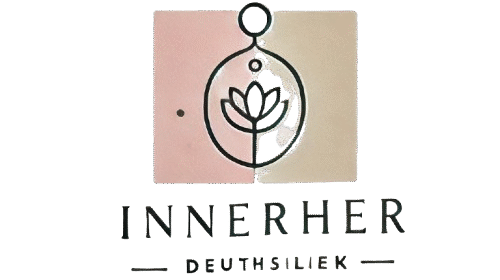Burnout and its hidden signs in women affect hormonal balance, energy, and mental health, requiring early recognition, daily self-care, and professional support for effective management.
Viele Frauen kennen die stille Last von Burnout, versteckte Anzeichen, Frauengesundheit, doch wissen nicht genau, wie sie diese Symptome deuten sollen. Kennen Sie das Gefühl, ständig erschöpft und irgendwie nicht mehr ganz Sie selbst zu sein? Das könnte mehr sein als nur stress oder müdigkeit.
Was burnout wirklich bedeutet für die frauengesundheit
Burnout is more than just feeling tired; it deeply affects women’s health in various, sometimes hidden ways. Physically, women may experience persistent fatigue, unexplained aches, or hormonal imbalances that disrupt menstrual cycles and overall wellbeing. Emotionally, burnout can lead to mood swings, anxiety, and a sense of detachment from daily life. These symptoms often start subtly but can worsen if ignored, impacting both mind and body.
Understanding that burnout involves a complex interaction between stress and biological factors is crucial for effective management. For many women, excessive stress triggers fluctuations in hormones such as cortisol and estrogen, which regulate mood, energy, and bodily functions. This imbalance may contribute to symptoms like brain fog, low energy, and difficulty concentrating.
How stress and hormones interact
When the body is under constant stress, cortisol levels remain high, which can suppress the immune system and disrupt reproductive hormones. This disruption can create a cycle that worsens emotional and physical symptoms. Recognizing the signs early—such as disrupted sleep, persistent tiredness despite rest, and emotional instability—is essential for preventing severe health consequences.
Women often juggle multiple roles, making it harder to notice burnout’s impact until it becomes overwhelming. Therefore, paying attention to one’s body signals and seeking balance through lifestyle changes, rest, and professional guidance can greatly improve health outcomes and quality of life.
Versteckte anzeichen erkennen, die oft übersehen werden
Many signs of burnout in women are subtle and easy to miss. These hidden symptoms often manifest as unexplained mood swings, low energy levels, and persistent feelings of anxiety or sadness. Women might experience difficulties in sleeping or concentrating, commonly referred to as brain fog. These symptoms can be mistaken for regular stress or hormonal fluctuations but could signal something deeper.
Another overlooked sign is physical discomfort such as constant bloating or unexplained weight gain. These issues may result from hormonal imbalances triggered by chronic stress and burnout. Paying attention to changes in your body and emotions is vital for early detection.
Emotional ups and downs no one talks about
Many women hesitate to discuss their emotional challenges, which can make the signs of burnout more secretive. Feelings of isolation, irritability, or a lack of motivation may be brushed off but deserve attention. Recognizing these feelings as potential red flags can help women seek support before the condition worsens.
Tracking monthly changes and asking, „Why do I feel off every month?“ can reveal patterns linked to burnout and hormone health. Simple daily habits, such as journaling or mindfulness, can bring awareness to these hidden signs and promote healthier responses.
Wie stress und hormonelle veränderungen zusammenhängen
Stress impacts the body in many ways, especially through its effect on hormones. When women experience chronic stress, the body releases more cortisol, known as the stress hormone. Elevated cortisol levels can disrupt the balance of other hormones like estrogen and progesterone, which are essential for regulating mood, energy, and reproductive health.
This imbalance can lead to symptoms such as irregular menstrual cycles, increased anxiety, and difficulty sleeping. Stress may also worsen pre-existing hormonal issues, making women feel more fatigued and emotionally unstable.
The role of the hypothalamic-pituitary-adrenal (HPA) axis
The HPA axis controls the body’s response to stress and influences hormone production. When stress becomes constant, this system can become overactive or dysregulated, causing hormonal shifts. These shifts might explain why some women experience brain fog, weight gain, or mood swings during stressful periods.
Understanding this connection helps to identify effective ways to manage stress. Lifestyle changes such as regular exercise, mindfulness practices, and balanced nutrition support hormone health and help break the cycle of stress-related symptoms.
Praktische tipps für den alltag zur unterstützung der gesundheit
Supporting women’s health daily involves simple but effective habits. Prioritizing balanced nutrition helps maintain energy and supports hormone balance. Focus on whole foods like fruits, vegetables, lean proteins, and healthy fats. Staying hydrated is equally important for overall well-being.
Regular physical activity, even light exercises such as walking or yoga, can reduce stress and improve mood. Exercise helps regulate hormones and boost energy levels, making it a crucial part of daily routines.
Mindfulness and stress management
Incorporating mindfulness techniques such as deep breathing, meditation, or journaling can help manage emotional ups and downs. These practices reduce cortisol levels and improve mental clarity.
Finally, ensuring adequate quality sleep is vital. Creating a relaxing bedtime routine and limiting screen time before sleep supports hormone health and recovery.
Building these small habits daily creates a strong foundation for lasting health and resilience in women facing burnout and hidden stress symptoms.
Natürliche wege zur balance von energie und gefühlen

Balancing energy and emotions naturally involves understanding the body’s signals and providing gentle support. Techniques like practicing mindful breathing and meditation can calm the mind and improve emotional stability. These practices lower stress hormones and promote mental clarity.
Nutrition plays a vital role; incorporating foods rich in omega-3 fatty acids, vitamins, and minerals supports brain health and hormone regulation. Herbal teas like chamomile and adaptogens such as ashwagandha can also help manage stress and boost vitality.
The importance of movement and rest
Regular, moderate exercise like walking or yoga encourages blood flow and energy balance without overwhelming the body. Equally important is getting sufficient restful sleep, which restores both emotional and physical health.
Developing a consistent daily routine that respects individual limits helps women reclaim energy naturally and maintain emotional balance amid life’s challenges.
Wann professionelle hilfe wichtig wird und warum es kein tabu sein sollte
Recognizing when to seek professional help is a vital step in managing burnout and maintaining women’s health. If symptoms like constant exhaustion, persistent anxiety, or severe mood swings interfere with daily life, consulting a healthcare provider is important.
Professional support can provide personalized diagnosis and treatment, which may include therapy, counseling, or medical interventions. It is essential to remove the stigma around asking for help, as mental health is as crucial as physical health.
Signs you should consider professional help
Indicators include constant feelings of overwhelm, difficulty performing regular tasks, or emotional numbness. If these signs persist for weeks or worsen, timely support can prevent further decline.
Therapists and doctors can guide you through coping strategies and recommend lifestyle changes that support recovery. Embracing professional help is a strong and necessary part of self-care, reflecting courage and a commitment to wellbeing.
Taking charge of your health and well-being
Understanding the hidden signs of burnout and how they affect women’s health is key to living a balanced and healthy life. By recognizing symptoms early and adopting practical daily habits, women can support their energy and emotional health naturally.
It’s important to remember that seeking professional help is a sign of strength, not weakness. With the right care and lifestyle changes, it’s possible to regain control and improve quality of life.
Listening to your body and mind, and taking steps toward healing, can lead to lasting wellness and greater happiness.
FAQ – Burnout, Hidden Signs, and Women’s Health
What are the hidden signs of burnout in women?
Hidden signs include unexplained fatigue, mood swings, brain fog, sleep difficulties, and persistent physical discomfort like bloating or weight gain.
How does stress affect hormone balance in women?
Chronic stress increases cortisol levels, which can disrupt estrogen and progesterone balance, leading to mood changes, fatigue, and other symptoms.
What daily habits support women’s health during burnout?
Balanced nutrition, regular moderate exercise, mindfulness practices, hydration, and quality sleep are essential daily habits to support health.
When should a woman seek professional help for burnout symptoms?
If symptoms like constant exhaustion, severe mood swings, or anxiety interfere with daily life and last for weeks, professional help should be sought.
Can natural methods help balance energy and emotions?
Yes, techniques such as meditation, breathing exercises, herbal supplements, balanced diet, and gentle exercise can naturally restore balance.
Is seeking professional help for burnout a sign of weakness?
No, seeking support is a sign of strength and a positive step towards recovery and maintaining mental and physical health.

